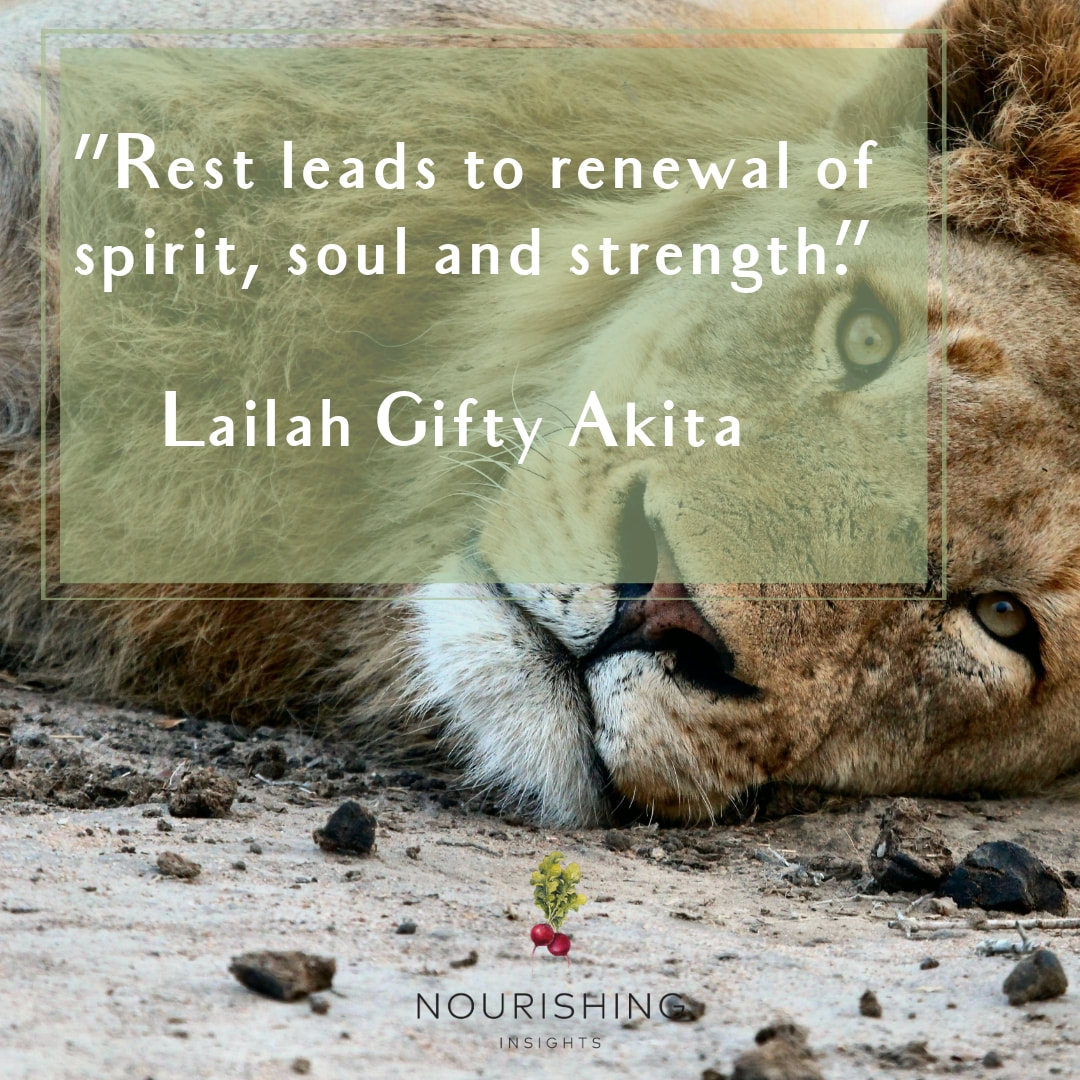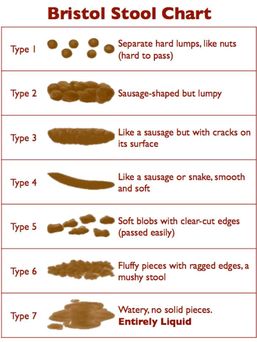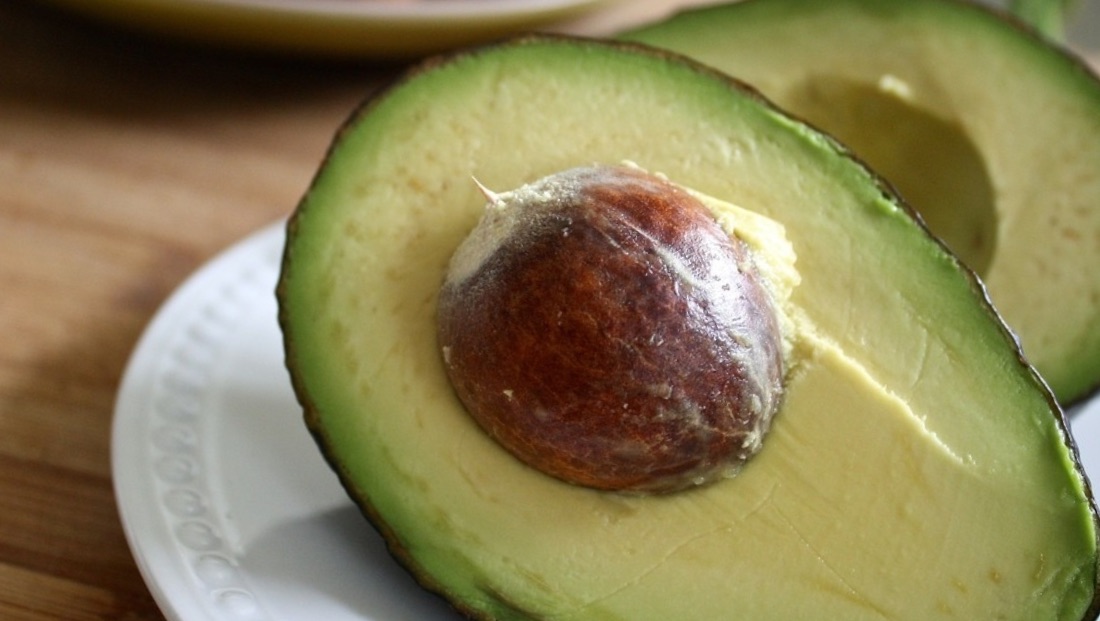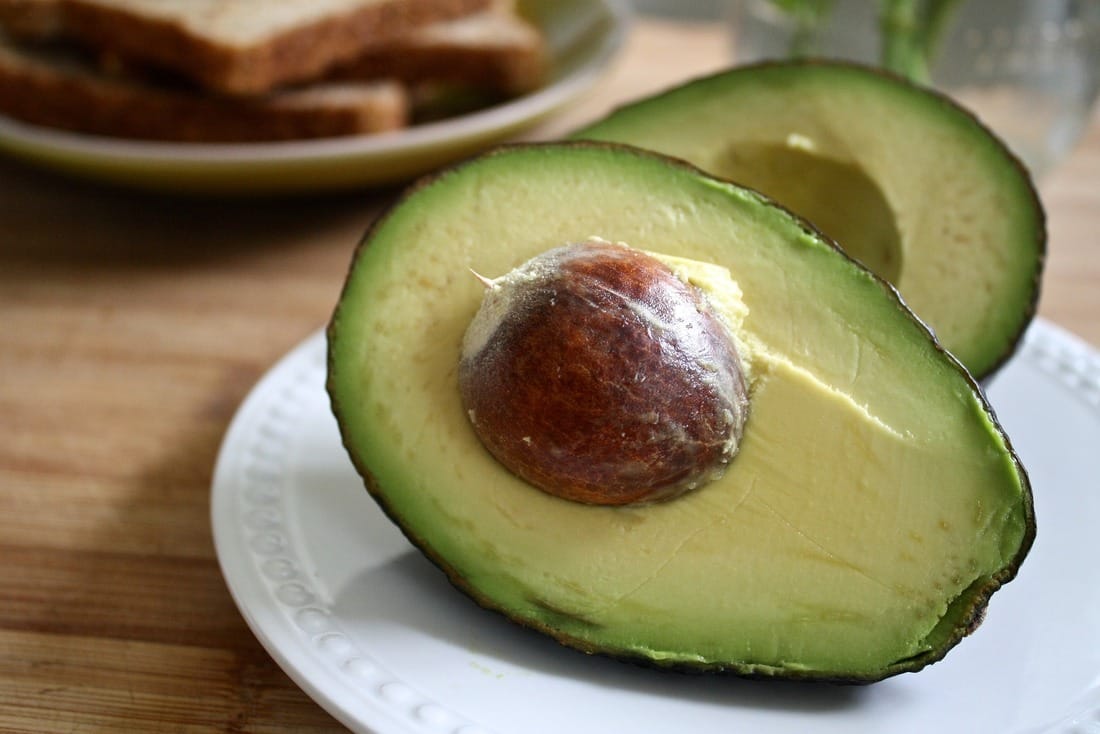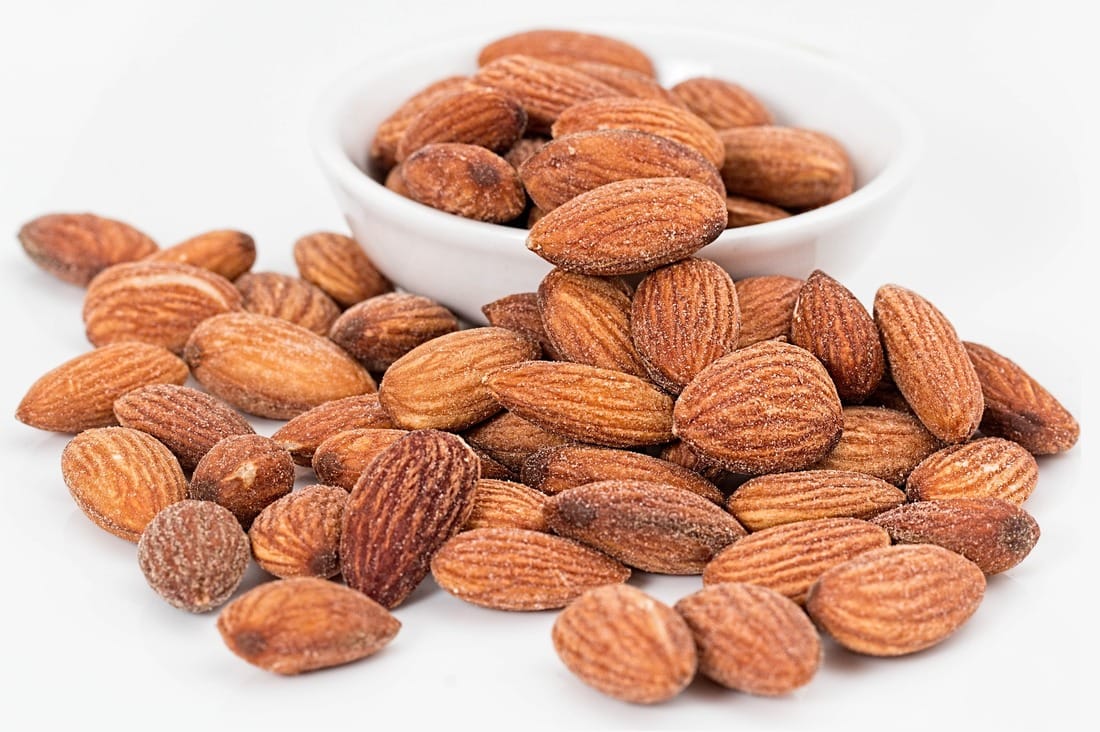|
Adaptogen herbs are quite an amazing type of healing plant which can help our stress response by modulating cortisol and normalising our physiological function. Possibly one of the best known is ginseng of which there are several types. My first experience with Siberian ginseng was about 23 years ago when going through a period of fatigue post virally and was fortunate enough to live beside Scotland’s first qualified Medical Herbalist Brian Lamb. Brian started me on Siberian ginseng among other things which had me firing on all four pretty quickly. Since then, I have been a firm advocate and have been fascinated by the quite remarkable benefits of these herbs which I wouldn’t be without in my own life.
1. Siberian Ginseng or Eleutherococcus senticosus. My personal favourite and one I’ve used many times with success over the years. Research has shown that eluthero can significantly improve energy, mood, stamina and cognitive function. It has also been shown to modulate blood pressure. One example is a study of those with chronic fatigue which showed benefit especially for those with mild to moderate symptoms. 2. Ashwagandha has been shown to improve memory and learning and is also the most researched adaptogen for those with underactive thyroid. In Ayurvedic medicine it is seen as an all round tonic and used to promote fertility. Some studies have shown cognitive benefit for those with bipolar disorder and also an improvement in cholesterol and blood glucose in diabetes. 3. Rhodiola has been researched in relation to its impact on stress and depression. In a study of people with stress related burn out, it improved many associated measures including stress and depression. One study has suggested that Rhodiola showed favourable results versus Zoloft (sertraline) with less associated risks for mild to moderate depression. Because of the lack of side effects, some have suggested it be used in place of antidepressants which do come with side effects and also deplete certain nutrients. 4. Shatavari is an interesting adaptogen and has many uses. The word literally means ‘woman who has a thousand husbands’ and is traditionally given for fertility and improved libido, vaginal dryness and is useful in the prevention of osteoporosis. It is also widely used as a woman’s herb and has been shown to be an excellent galactagogue for low milk supply. For menopausal women, it has also been shown to improve libido. 5. Holy basil is lesser known but becoming more mainstream perhaps due to the availability of Pukka Tulsi tea which is becoming popular. Also known to boost energy and cognition, there are studies showing improvement in generalised anxiety. Tulsi has been shown to have broad spectrum antimicrobial activity in studies. 6. Astragalus is a fascinating herb with many effects and research has suggested it may have anti-tumour activity, blood sugar lowering effects and supports the immune system. It has been shown to prevent colds and flus and is particularly beneficial for upper respiratory infections. Some studies have looked at the cancer protective effects. 7. Cordyceps is an adaptogen which is lesser known among the public but is gaining recognition across many pathologies. It is actually a type of fungi or medicinal mushroom which, similar to the above also has immune modulating effects and supports the stress response. You may come across it in supplements to support stress or adrenal function. It also has anti-tumour effects and is indicated for respiratory infections and chronic fatigue. More and more research is coming out on the effects of mushrooms in cancer prevention and indeed mushrooms are widely used in mainstream medicine in Russia, China and Japan. In clinical practice we use adaptogens for many different benefits as explained above and we sometimes use more than one where needed. I myself take an adaptogen year round and change it according to my needs. The question is not so much whether to take an adaptogen, it is more which one would help me most! Drop us an email for advice on which might be most helpful for you at [email protected]
0 Comments
"In the jungle, the mighty jungle, the lion sleeps tonight..." Even the lion, the king of the jungle needs rest time. Interestingly the lion sleeps between 10-20 hours a day. Isn’t it quite astonishing that animals know instinctively how to project manage, how to conserve energy and how to make the best use of their own personal resources. We, on the other hand are inclined to forget to bring the concept of rest into our lives and in our modern day 24/7 culture, real rest has become elusive. We may think we are resting when we are sitting on our bottoms. However, with the television in the corner of the room, a laptop on our knee, a phone in our hand and a mug full of our chosen caffeine or other stimulant, are we really resting in the true sense? Is it any wonder therefore that we can’t even sleep properly these days? Most of us will have experienced difficulties with sleep onset and also getting good quality continual sleep. Sleep problems are becoming a bit of an epidemic across the western world. You can read some of our top tips for a good night's sleep here. Working under the functional medicine umbrella, we recognise sleep as one of the fundamental functional pillars when it comes to health. Sleep is when our bodies heal, repair and are restored. During the day, our cortisol levels should change with sunrise and sunset. Ideally, they should be higher in the morning and gradually come down across the day with lower levels in the evening to prepare our bodies for sleep. However, imagine a body which is out of balance and which is producing too much cortisol in the middle of the day and/or in the evening. This is becoming all too common a problem these days as we are overstimulated, not just from our exposure to electronics and the internet but being part of a culture that puts pressure on us to work in the evenings , checking emails etc. So we feel we have to keep going when our natural rhythms need to prepare the body for sleep. Imagine what would happen if lions lived their lives the way many of us do, without adequate time of rest. There would probably be a lot of hungry and angry lions wandering about and let's face it we don't want to come face to face with a 'hangry'l ion!! Lions spend the majority of the day resting which in terms of their survival makes perfect sense. They expend a lot of energy when they hunt so if they were to move around during the day when they don’t need to they would waste a lot of their energy and end up creating more work for themselves by having to hunt more regularly. Lions rest because they know they need to. So what can we learn from lions? Lions teach us that periods of rest can help us to be productive when we need to be. A lack of rest and adequate sleep impacts our work lives, relationships, mood, hormone balancing, blood sugar, libido, adrenal and thyroid function, immune system and so the list goes on..... in other words every aspect of our health. It is as necessary for our own survival as it is for lions. So how do we find rest in the modern world? Our top tips
Finally, do whatever you need to, to incorporate patterns of rest into your day. What you find restful might be completely different to another person. Whether you find rest in a hobby like knitting or singing, do something that helps you relax. Your body will thank you for it. And breathe......  1. Pukka Bamboo Reusable Travel Cups £8.99 - These have been a firm favourite since they launched last year. They would make an ideal Secret Santa gift as they come in a range of colours and who doesn't drink tea or coffee?  2. Booja Booja The Gourmet Selection £17.79 - If you haven't tried Booja Booja you are seriously missing out! This selection contains 20 perfect dairy free truffles in 6 different flavours. A beautiful gift or perfect alongside coffee at the end of a dinner party. We also have fine de champage £9.95 and hazelnut £7.35.  3. Spacemasks - £15 - Sometimes you can be so busy that taking time out just doesn’t seem possible. This is where your Spacemask comes in. You are about to encounter Interstellar Relaxation. Within minutes of putting on your Spacemask you will feel it warm up and start to mellow your tired eyes and face. The soft jasmine smell will help to transport you away. Somewhere between Jupiter and Andromeda. The perfect antidote to festive overindulgence!  4. Back, Neck and Shoulder Massage £28 - Who couldn't use a massage to recover from the stress of Christmas? Make getting through January that little bit easier for someone you love with a voucher for a relaxing massage.  5. The Lumo Diffuser £79.99 - A firm favourite the Lumo looks beautiful and fills your home with the scent of gorgeous essential oils. It can be set for 2, 5 or 10 hours and has a number of light colours to choose from. We also have the Petal diffuser - £49.99 and the Elephant diffuser - £55 which is ideal for little ones.  6. Pukka Tea Caddies £9.99 - Tea caddies in every colour of the rainbow. These beautiful ceramic and bamboo tea caddies would be a welcome addition to any kitchen. Each comes in it's own wee box making it very easy to wrap. Why not pair with a box of tea for the perfect gift? 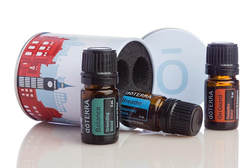 7. DoTerra's Favourites Trio - £30 Presented in a gorgeous reusable tin these three oils are must haves through the winter months. Balance to keep you grounded through the chaos, OnGuard to support your immune system and Breathe to help you take it all in!  8. Kaerlig Beauty Soaps in Red and Blue - £8.99 Locally produced in Aberdeenshire these luxurious hand soaps are a pleasure to use. Chose from Red scented with grapefruit and bergamot essential oils. Or Blue scented with spearmint and Lime essential oils.  9. Natural Facelift Facial £40 - Feel 100 years older by the time Christmas dinner is over? Turn back time with our Natural Facelift Facial. Using Japanese massage and facial reflexology points to smooth fine lines and plump the skin.  10. Christmas Morning Hamper £30 - Everything you need to start the day on Christmas Morning: Primrose's Kitchen Raw Carrot, Apple & Cinnamon Muesli; Pukka Gorgeous Earl Grey; Clipper Roast & Ground Arabica Decaf Coffee; Struan Scottish Heather Honey; The Fruit Tree Organic Fruit Jam; Amphora Festive Candle. What is Endometriosis? Endometriosis is a common women’s health condition affecting 1 in 10 women in which cells from the endometrium (lining of the uterus) appear and flourish outside the uterine cavity, usually on the ovaries. Symptoms can worsen at certain points during the menstrual cycle as cells are influenced by female hormones. Symptoms can include pelvic pain, painful periods, painful intercourse and infertility. It can also impact urinary issues and pain on urination and has been linked to interstitial cystitis. Usually endometriosis is diagnosed after a laparoscopy of the pelvic cavity although pelvic ultrasounds are also used to detect endometrial tissue outside the uterus. The shedding of endometrial tissue long term can lead to scarring and chronic inflammation which has led many experts to suggest a strong autoimmune component to the condition. In clinical practice it is something we often see coexisting with other autoimmune conditions. Risk factors for endometriosis include: family history, a diet high in trans-fats, use of intrauterine devices, and unbalanced oestrogen levels. Conventional Treatments Symptoms are often managed with hormonal medication to suppress the natural menstrual cycle, plus painkillers to manage the associated discomfort. Occasionally progesterone creams may be prescribed. The most aggressive treatment is surgery, with some women opting for a hysterectomy. The long term use of non steroidal anti-inflammatory medication for pain can contribute to the problem as it sets us up for intestinal hyper permeability (leaky gut) which adds to the picture of inflammation, so safer and effective means of reducing inflammation are needed. Although laparoscopic removal of endometrial tissue can benefit sufferers for up to 2 years, symptoms generally return and the procedure itself can cause lead to further scar tissue. In an ideal world sufferers would be referred to Nutritional Therapists or Functional Medicine practitioners to explore root cause/s and to address all angles. Natural Alternatives The naturopathic approach to endometriosis is focussed on:
Reducing Inflammation Inflammation is a huge driver for endometriosis. The Nurses Health Study II found that women who consumed the most trans-fats (hydrogenated vegetable oils often used in processed foods) were 48% more likely to be diagnosed with endometriosis. Women with the highest consumption of omega-3 fatty acids were 22% less likely to be diagnosed with endometriosis. Reducing the amount of omega-6 fatty acids at the same time as increasing omega-3s also helps reduce inflammation. Ideally we would have an omega-6:omega-3 ratio of 3:1 however the western diet is closer to 16:1! Foods that are high in omega-6 and should be avoided include sunflower, corn, soybean and cottonseed oils. In addition to this opt for grass-fed meat as livestock fed a grain-based diet high in corn and soya produce meat high in omega-6. Foods that are high in omega-3 include: Oily fish like salmon and mackerel; flax and chia seeds; organic free-range eggs; extra virgin olive oil; and walnuts. Some people may also benefit from supplementing with an omega-3 oil in the short term while they make dietary changes. Antioxidants are very relevant to prevention and reversal of tissue damage in endometriosis, so it's important to increase our antioxidants in the diet via increasing vegetables and fruits (ideally organic). Vitamin C, A and E are beneficial and also resveratrol from red grapes, N-Acetyl cysteine, pine bark, green tea and melatonin have been studied for their powerful antioxidant benefits with some interesting results. NAC (N-acetyl cysteine ) A 2013 study of 92 women with endometriosis showed that following 3 months of supplementing with NAC for 3 days a week each week led to cancellations of laparoscopic visits due to a reduction in symptoms. A new 2023 study has also showed the benefits of NAC. Conclusions are that NAC showed a statistically significant reduction in endometriosis pain, a statistically significant reduction in endometrioma size and 75% of patients who wanted to had a spontaneous pregnancy within 6 months! I have been using NAC for a long time in clinical practice and can attest to the benefits most strongly. It also has benefits for miscarriage prevention among many others. Pycnogenol from pine bark A swiss study which gave women either Pycnogenol or GnRH (Gonadatropin releasing hormone) for 48 weeks showed a reduction in symptoms in both groups. Interestingly, after treatment stopped the benefits in the pycnogenol group lasted while the GnRH group relapsed after treatment. Melatonin A very interesting 2013 randomised, double blind placebo controlled study looked at the analgesic, antioxidant and anti-inflammatory effects of melatonin in endometriosis with some very promising results. Apart from improving sleep, melatonin was shown to reduce the risk of using analgesics by 80%. Melatonin if supplemented needs to be started slow and gradually increased up to the 10mg dose used in this study. You can also support your own natural melatonin production by avoiding the blue light effect at night from computers and TV's, wearing amber glasses and sleeping in total darkness. Certain foods such as cherry, banana, oranges, kiwi and pineapple support melatonin production as does supplementing magnesium. Enhancing Detoxification Yes, we are talking about poo here! Actually detoxification involves the gut and the liver but it’s vitally important to make sure that we move our bowels at least once every day if we want to facilitate optimal detoxification. We also want to make sure that we are having a normal bowel movement. On the Bristol stool chart below we should be aiming for a 3-4. If you are having anything other than that pop in and have a chat because there are lots of things you can do to support healthy bowel function. Constipation is a common problem in hormonal imbalance across the board and we need to get to the root cause to eliminate this risk factor properly. Increasing the amount of vegetable-based fibre in the diet is vital if we want to support our gut bacteria as this is what the good bacteria feed on. Increasing our intake of vegetable fibre has been shown to help clear excess oestrogen from the bloodstream. Cruciferous vegetables are particularly good at this so increase your intake of: broccoli, brussels sprouts, cabbage, kale and cauliflower. Supplementing with the right B vitamins can support detoxification of hormones promoting balance. Endometriosis often involves higher oestrogen over progesterone (which tends to be low), another commonly used herbal supplement which is used to rebalance the hormones is Agnus castus. There are further supplements which support this but these are advised on a case by case basis and depend on identifying individual challenges and possibly further testing. For some sufferers there may be an underlying SIBO (small intestine bacterial overgrowth) which needs to be dealt with. Balancing hormones This involves diet as well as removal or avoidance of a class of chemicals known as endocrine disrupters. That's because these chemicals found in our cleaning fluids, toiletries and cosmetics and plastic bottles actually exert a xeno-oestrogen or oestrogen mimicking effect. The trouble is our bodies don't know the difference between a real oestrogen and a pretend one so exposure to these chemicals needs to be avoided if we want to balance hormones. The increased exposure to these endocrine disrupters in modern living explains in part the increased challenges with many hormonally driven conditions. So time to take a look at your bottles hiding under the sink and examine your toiletries. There are many alternatives available which avoid all the nasties such as parabens and phthalates etc. Using essential oils are a safer way to clean your home and good old fashioned vinegar and bicarb will save you money and unnecessary toxin exposure. Managing stress Hormones don't work in isolation. The endocrine system works as a team and managing our stress hormones is key to supporting any hormone challenges. It's also why a comprehensive assessment of stress hormones is included in my preferred hormone screening. When stress is chronic and cortisol is elevated, progesterone can drop leading to unpleasant symptoms such as moodiness, increased weight around the middle, sleep problems and breast tenderness. Supplementing with magnesium and adaptogen herbs can support this as can meditation, yoga and mindfulness. Reducing Symptoms Studies have shown a significant reduction in symptoms in women who move away from eating higher-glycaemic carbohydrates (bread, pasta, rice, cakes, etc.), reduce caffeine and increase their intake of Omega-3 fatty acids. Caffeine can have be a problem for many women with endometriosis with one study showing consuming 150-225mg of caffeine per day (about 1-1.5 cups of coffee) increased the risk of endometriosis by 20% and those who drank more than 225mg of caffeine had a 60% increase. Supporting blood sugar balancing is fundamental for hormone balancing as these two are related. Turmeric has been shown to reduce inflammation, support blood sugar (important when you’re trying to reduce food cravings), reduce pain and support liver detoxification making it a key supplement in the support of endometriosis. Magnesium, Ginger root and Devil's claw are also favourites as anti-inflammatories in place of NSAID's. Magnesium can be taken throughout the month with an increased dose the week prior to a period. Magnesium is commonly deficient in endometriosis and you may be experiencing symptoms of deficiency such as twitchy eyes, restless legs, anxiety, palpitations, headaches, sleep problems. These are things I see commonly in clinical practice. It's important to find the right kind of magnesium and also the right dose for you so do get in touch to find out more. A simple way of using it in addition to oral supplementation is to use a spray on the abdomen daily and increase the week before a period. In addition to its anti-inflammatory benefits, magnesium is also essential for energy, mood, sleep and blood sugar regulation. We also recommended epsom salt baths due to very good transdermal absorption. Food intolerance also play a part here in that if we continue to eat foods which we are intolerant to we add to the picture of inflammation. One of the biggest drivers in endometriosis is gluten and studies have shown a significant reduction in symptoms following a gluten free diet. However, when IgG food intolerance testing is done, we can see a further reduction in symptoms. Other food triggers can be dairy, soya, yeast, eggs, corn, peanuts, cane sugar and also foods in the nightshade family eg tomatoes, potatoes etc. Endometriosis has a strong link with IBS so following the anti-inflammatory protocol above and an elimination has been found to be supportive of both conditions. Genetics: nutrigenomics is the study of how nutrition influences every aspect of our gene expression. When we do genomic testing we learn how our individual genetics play a role in every aspect of our physiology from detoxification to how we metabolise hormones and nutrients (among many others) and this is becoming such a pivotal starting point for many as it gives use those immediate signposts at an individual level as to why a person may need more specific support with certain supplements or why they may not tolerate others. It can also guide us to the right type and combination of supplements when we know the individual needs based on genetics. We also learn how our nutrition influences our gene expression either positively or negatively so we can make the most optimal choice for us. If you're one of those people who feels they have tried everything and is still not getting the answers and symptoms resolution, looking at genetics could definitely be the way forward. You could always book a discovery call if you would like to understand more. Massage therapy can also help reduce symptoms. An Iranian study showed that massage of the back, sacrum and abdomen lead to a significant reduction in painful dysmenorrhea caused by endometriosis. Abdominal massage can also stimulate peristalsis in the large intestine therefore support detoxification. In addition to this abdominal massage can also help to breakdown scar tissue and adhesions. In all cases risk factors and drivers are always individual and an appointment with a Nutritional Therapist can help you uncover the triggers and drivers of your own condition and support you with an individualised protocol. We also have access to a range of tests including comprehensive hormone screening such as the DUTCH Test which covers reproductive hormones, stress hormones, melatonin levels, neurotransmitters and B vitamin metabolites. We can also assist you with long term plans such as fertility and other co-existing health challenges. Always ask us first before choosing supplements as there may be drug nutrient interactions to consider or speak to your healthcare provider. Some off the shelf supplements may also contain food allergens and other additives. To book an appointment or for enquiries contact us here References: https://academic.oup.com/aje/article/137/12/1353/155016 http://cancerres.aacrjournals.org/content/41/9_Part_2/3771.short http://www.fertstert.org/article/S0015-0282(01)01991-4/abstract https://academic.oup.com/humrep/article/25/6/1528/2915756 http://europepmc.org/abstract/med/23334113 https://www.sciencedirect.com/science/article/pii/S0753332217346838 https://www.ncbi.nlm.nih.gov/pmc/articles/PMC3093183/ https://www.ncbi.nlm.nih.gov/pubmed/17879831 https://www.ncbi.nlm.nih.gov/pubmed/23737821 https://www.ncbi.nlm.nih.gov/pubmed/23602498 https://pubmed.ncbi.nlm.nih.gov/18983759/ https://www.ncbi.nlm.nih.gov/pmc/articles/PMC10048621/ Did you know that magnesium is an essential mineral for cellular health and over 300 biochemical functions in the body? As a result, deficiencies of this vital nutrient can create all kinds of health problems. Health complaints which magnesium deficiencies are commonly associated with include hormonal imbalance, behavioural disorders, mood swings, insomnia, fibromyalgia, chronic fatigue, migraine headaches, and type 2 diabetes. It is now estimated that a staggering 80% of people are deficient in this vital nutrient. What has led to widespread magnesium deficiency? The main causes of magnesium deficiency are gastrointestinal and renal losses. However, you can also lose magnesium through excessive sweating, every day movement and stress. Even if you regularly consume vast quantities of magnesium rich foods such as spinach and swiss chard, you still may not be receiving the levels of magnesium required for optimal health. This is because soil depletion has lowered the amounts of magnesium present in crops and magnesium has been stripped from processed foods. In addition, the increasing consumption of antibiotics both for medical usage and in the food chain has stripped our guts of the good bacteria necessary for proper digestion and absorption of vitamins and minerals. As the number of people with digestive disorders such as leaky gut has risen, as well as autoimmune conditions such as coeliac disease which inhibits the absorption of nutrients, this also makes it harder for people to absorb vitamins and nutrients such as magnesium. It may therefore be easier for people with these kinds of digestive complaints to absorb vitamins and minerals transdermally through the skin rather than the gut. BetterYou have created a great range of high quality magnesium oil sprays and bath salts which are great for people with these kinds of issues. What are the benefits of supplementing with magnesium? From regulating the heartbeat rhythms to helping neurotransmitter functions, magnesium is a vital nutrient for human health. There are numerous studies which have pointed to the benefits of supplementing with magnesium in conditions such as migraine, type 2 diabetes, muscle aches, depression and more. For example, a study in the Expert Review of Neurotherapeutics found that taking 300 milligrams of magnesium twice a day reduced the frequency of migraine headaches. Whilst another study in MMW Fortschr Med has found that people under mental and physical stress can benefit from a daily intake of magnesium to prevent symptoms of deficiency such as anxiety, depression, restlessness and insomnia. Magnesium can also aid digestion, and relieve constipation as it relaxes the muscles in the digestive tract. How do I know if I am deficient? If you are experiencing symptoms such as muscle aches or spasms, poor digestion, anxiety, headaches, a twitchy eye or insomnia it may be a sign that your levels of this mineral are low. Of course there may be other reasons for this, which is why if you are really concerned it is always best to speak with a Nutritional Therapist who will be able to assess your case and perhaps make additional or more appropriate suggestions. Magnesium on its own is not always a miracle cure! Particularly if there are other gastrointestinal issues or food intolerances. Another sign that you are low might be if you regularly crave chocolate which contains magnesium. As it has become the typical punchline that women crave chocolate around menstruation, it has been suggested that this is because chocolate contains magnesium which alleviates some of the symptoms associated with PMS such as pain and mood swings. However, dark chocolate contains far more magnesium than milk chocolate, so if you are after some magnesium rich chocolate it would be a dark chocolate which contains at least 70% cocoa solid (and preferably raw!) that I would go for! If you are interested in learning more about Magnesium supplementation, please ask to speak to our clinically trained Nutritional Therapist Beverley Sarstedt who will be able to advise you and offer suggestions on what is best in your individual case. References: Christina Sun-Edelstein and Alexander Mauskop. “Role of magnesium in the pathogenesis and treatment of migraine.” Expert Review Of Neurotherapeutics Vol. 9 , Iss. 3,2009 E. Wienecke and C. Nolden. “Long-term HRV analysis shows stress reduction by magnesium intake”. MMW Fortschr Med. 2016 Dec;158(Suppl 6):12-16. Epub 2016 Dec 8. This is the time of year for us all to panic and feel overwhelmed as we make new year's resolutions which are often re-scheduled to the following year before Burn's night! This is largely because we make a plan to deprive ourselves of all the things we like and not only that but we actually make the mistake of assuming that we need to deprive ourselves of the very things our body needs e.g. fat! Living well is not about deprivation. It's about recognising what's good for us and having more of it! When we seize with both hands all that is good for mind body and soul, we look better, we feel better, we think better, we love better. The wonderful thing is that to enjoy all of these simple but proven health tips we don't have to spend lots of money joining expensive clubs. Nor do we have to count anything, unless it's your blessings or the number of colourful veg on your plate! Life is for living. Give it your best shot and choose habits that bring nourishment to both body and soul. A body that is deprived of neccesary nutrients will find itself hungry for anything it can get its hands on. This is nature! My clients are always delighted when I ask them to eat more in order to find their way to a body weight which is ideal for them. We can't boost our metabolism by eating foods low in calorific value, we boost metabolism by eating Nutrient dense foods which nourish us! The bottom line is, if we support our natural physiology by enjoying all the good things nature provides, it will support us! If we try to go against nature, our body will let us down. So, go easy on yourself this year. Love your body, love your mind and replace deprivation with indulgence of all that is good. The rest will take care of itself!
|
Amazon Associates DisclosureNourishing Insights is a participant in the Amazon EU Associates Programme, an affiliate advertising programme designed to provide a means for sites to earn advertising fees by advertising and linking to Amazon.co.uk. Archives
December 2023
|
WHAT OUR CLIENTS ARE SAYING“I did Nutritional Therapy with Beverley and it was life changing. I highly recommend it!” Allison Blakely (Glasgow)
|
Contact Us |


